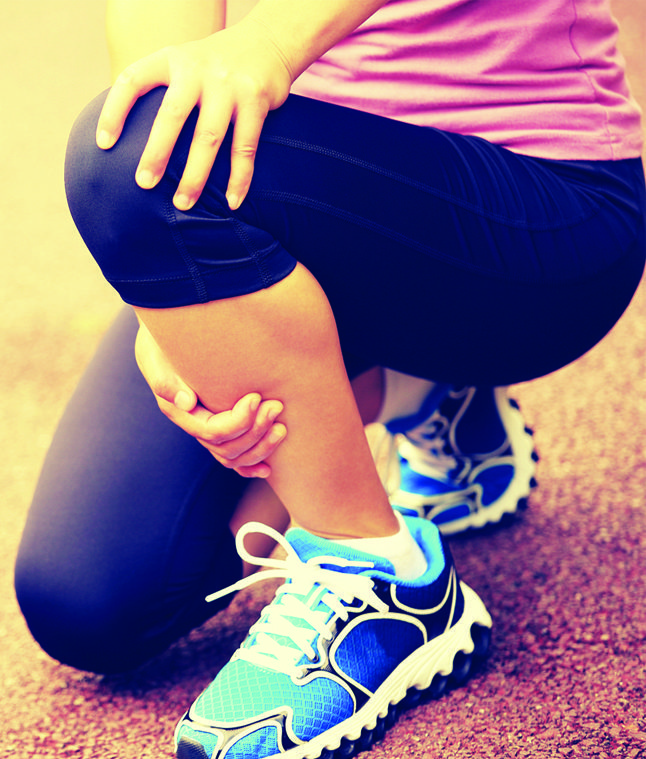By Dr. John C. Kagan, M.D.


The knee is one of the most complex joints in the body, and because of the stresses it must transmit during high-intensity workouts and even everyday activities, it is very sensitive to damage. The knee is prone to injury and disorders such as misalignment of the kneecap or partial or complete dislocation. Other factors that can lead to Runner’s knee include thigh muscle imbalance or weakness, flat feet, and physical injury.
Irritation of the soft tissues surrounding the front of the knee can cause pain, as can strained tendons caused by overextension, overuse, or inadequate stretching before exercise. Knee pain can also be referred from another part of the body, such as the back or hip, through the nervous system. If the kneecap is misaligned, the kneecap, or patella, will weaken and break down the cartilage surrounding it, causing pain in the bone and soft tissues alike.
To diagnose Runner’s knee, your doctor will talk with you to learn your medical history and discuss your sports activities with you. It’s important to consider any recent changes to your exercise regimen that may be contributing to your pain, such as increased frequency or intensity, or a change to the type of footwear used or the playing surface. The doctor will also perform a physical exam and will check the alignment and stability of the leg and knee. Imaging, such as an X-ray, MRI or CT scan, may also be used to rule out tissue damage.
Before considering surgery to alleviate Runner’s knee, your doctor will ask you to avoid any activity that causes knee pain and to use rest, compression, cold packs and elevation to reduce inflammation and allow for healing of potentially injured tissues. Reconditioning with physical therapy from a qualified sports medicine practitioner will also help to increase flexibility and show you techniques that will allow you to practice your sport without causing injury. Braces, taping, and other orthopedic aids can be prescribed for use during exercise to prevent and alleviate pain.
However, if damage to the kneecap is severe and non-surgical treatment options do not provide sufficient relief, surgical options are available. The repair can be done using minimally invasive arthroscopic surgery. The surgeon will remove fragments of the damaged kneecap through a small incision. Alternatively, if the kneecap is misaligned, the surgeon can realign it surgically.
Whether treating Runner’s knee surgically or non-surgically, the best treatment is to prevent knee injuries in the first place. When practicing high-impact athletic activities, it’s important to stretch properly before each exercise, increase your training slowly and gradually, and to use proper form and proper athletic gear, with quality shock absorption. If you’re exercising to lose weight, high-impact workouts are not a good idea, because the excess weight combined with the workout can cause more damage to the knee.
If you have concerns about Runner’s knee or other orthopedic disorders, Dr. John C. Kagan and his staff are ready to answer your questions. Dr. Kagan has more than 30 years of experience as an orthopedic surgeon and sports medicine specialist treating patients in Southwest Florida. He specializes in treating patients with knee, shoulder and hip pain, as well as general orthopedics and hand surgery. For more information, visit www.kaganortho.com or call 239-936-6778.
Dr. John C. Kagan and his staff are happy to answer your questions about total hip replacement surgery. Dr. Kagan has more than 30 years of experience as an orthopedic surgeon treating patients in Southwest Florida. He specializes in treating patients with knee, shoulder and hip pain, as well as general orthopedics and hand surgery. For more information, visit www.kaganortho.com or call 239-936-6778.
 Southwest Florida's Health and Wellness Magazine Health and Wellness Articles
Southwest Florida's Health and Wellness Magazine Health and Wellness Articles

